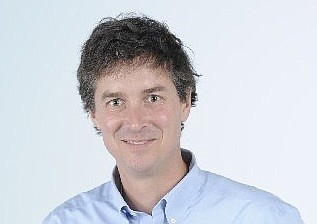Why do we have an economy?
Peel back all the ivory tower discussions, Dow strategists and think-tank policy talk. At rock bottom, what is the first, foremost and fundamental reason we have an economy?
It's to feed people.
Marketplaces are created to facilitate the exchange of goods and services so that the largest-possible number of people are fed. And clothed. And housed. Better able to pursue happiness.
Right? Sure, we can talk about stock indexes and fluctuations and the price of oil in China. And we can get confused by market mystiques, believing the market is some far-removed, other-worldly system and we are the subjects or victims of its whims and fancies.
But economies are created by people. Not gods. Just people.
Which means people can alter, dismantle and reconstruct them, too.
Sure, economies can grow to produce crazy-cool goods: Xboxes, Ferraris, titanium golf clubs and wine cellars.
Yes, economies can make people wealthy, and wealthy people even wealthier.
But an economy becomes broken -- warped, like the wobbly wheel of a grocery cart, always tracking off the right path -- if meeting human needs is no longer a primary goal.
It becomes dehumanized.
Today at 12:30, just as he does every Wednesday, Barry Kidwell -- folks call him Brother Barry -- will park his big white van in the nearest empty parking space next to Miller Park, open up the back doors and unload the food.
Warm soup. And shoes. Blankets. Medication. Socks. A spare dollar or two. Cold water. Warm coffee.
More than 100 people -- all homeless -- will come to eat.
"I'm seeing more new faces than ever," he's said to me.
That's because there are more homeless people. Between 2000 and 2009, poverty rates doubled in certain neighborhoods around town.
Kidwell, who runs Mustard Tree Ministries, symbolizes the tireless work of so many people and nonprofit organizations out there, near and far, who spend their days trying to rethread the thin strings on an ever-fragile safety net.
Isn't it our job to help the weak? If we are strong, don't we have a responsibility to those who aren't?
Can't economies do that, too?
Earlier this month, the Wall Street Journal reported that 60 of the biggest American companies are storing billions of profits in off-shore accounts that can't be taxed.
More than $160 billion. In profits. Profits that could be taxed if they were banked on American soil.
Gordon Gekko would call this greed, and say it was good.
A rising tide, right?
But here in Chattanooga, we've attracted businesses from all over the world, often by offering massive tax incentives. We're known as one of the best cities in the U.S., which means money is being spent, and a tax base grows, and so on.
So then why are unmet needs higher than ever?
Is it time to raise taxes?
(We are raising a generation of citizens who think paying taxes is wrong. Immoral. At no time since the colonial Sons of Liberty has paying taxes been so demagogued.)
If we have such an entrepreneurial community -- and we do, thankfully -- and if businesses continue to relocate here and tax revenue grows, then how does it begin to find its way to the programs that actually reflect the truest nature of an economy, which is to meet human needs?
"We need tarps," said Will Wallace, who works with Kidwell.
And rope and socks and bus vouchers and donations and tents and sleeping bags and plastic cups and extra food and cellphone minutes and 500 job offers and ...
"And deodorant," Wallace said. "This time of year, people could use deodorant."
Somehow, their crazy Miller Park economy, based on mercy, will provide.
Why can't the real one?
Contact David Cook at dcook@timesfreepress.com or 423-757-6329. Follow him on Facebook and Twitter at DavidCookTFP.

